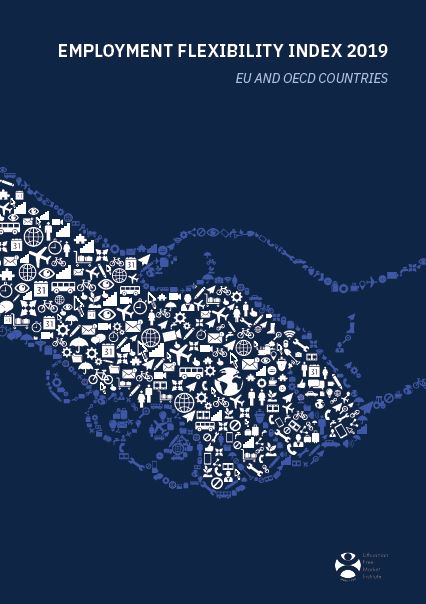 The 2017 labour law reform significantly improved Lithuania’s position in the Employment Flexibility Index, moving the country from the 27th to 15th position among EU and OECD countries, according to Employment Flexibility Index 2019 compiled by the Lithuanian Free Market Institute based on the World Bank’s Doing Business data.
The 2017 labour law reform significantly improved Lithuania’s position in the Employment Flexibility Index, moving the country from the 27th to 15th position among EU and OECD countries, according to Employment Flexibility Index 2019 compiled by the Lithuanian Free Market Institute based on the World Bank’s Doing Business data.
Denmark, the USA and Japan are found to have the most flexible labour regulation of all member states of the European Union (EU) and the Organization for Economic Co-operation and Development (OECD). These countries allow fixed-term employment contracts for tasks of permanent nature and apply no restrictions on the maximum length of fixed-term contracts or night work. These countries continue to promote flexible regulation and maintain the top rankings.
Lithuania showed the biggest improvement of all EU and OECD countries, mainly due to the reduction of redundancy costs. Lithuania outperformed Estonia in the 28th place and Latvia in the 20th.
Iceland dropped the most, from the 12th to the 19th position, as it had tightened the rules on premiums for night work, overtime and work on a weekly rest day. Norway moved up by five positions, from the 21st to the 16th following the removal of restrictions on night work.
“Employment flexibility stimulates overall productivity, employment and labor mobility across sectors allowing the economy to better and faster respond to labor market fluctuations. The leading countries – Denmark, the US and Japan – have different legal systems of regulating labor relations but they all promote flexibility,” says Karolina Mickute, Associate Expert at the Lithuanian Free Market Institute.
“Research shows that the attractiveness of a country’s business environment and the degree of employment flexibility do not necessarily match. Lithuania is among the top ten EU and OECD countries in terms of business competitiveness, while it is ranked 15th by employment flexibility. The labour reform was an important step forward but the Labour Code is not flexible enough to reflect the needs of the 21st century and as liberal as the reform opponents claim it to be,“ concludes Zilvinas Silenas, President of the Lithuanian Free Market Institute.
The Lithuanian Free Market Institute published the Employment Flexibility Index 2019 in cooperation with think tanks in Bulgaria, the Czech Republic, Estonia, Poland, Slovakia. The Index is based on the data collected by the World Bank for its annual Doing Business report. The index embraces 41 EU and OECD member states and more than 30 indicators on hiring regulations, working hours, redundancy rules and redundancy costs.
Read the full report Employment Flexibility Index 2019